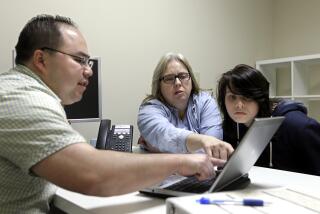Administration Urges Congress to Keep Catastrophic Care Tax
- Share via
WASHINGTON — Despite an outcry from many older Americans, the Health and Human Services Department urged Congress on Thursday not to roll back the surtax that helps finance catastrophic health insurance for retirees.
Although preliminary estimates show that the tax is bringing in more revenue than had been expected, Secretary Louis W. Sullivan told the Senate Finance Committee that the added revenue is not likely to continue once a new prescription drug benefit goes into effect in 1991.
“More harm can be done by being overly optimistic about the financing of these new benefits than by being prudently cautious,” Sullivan said. “The continuing implementation of catastrophic health insurance under Medicare is the most appropriate course of action.”
Sen. Lloyd Bentsen (D-Tex.), chairman of the Finance Committee, has suggested that the unexpected revenue could be turned back to retirees by reducing the catastrophic surtax by about 16%.
The committee heard a bipartisan protest about the surtax--which is paid by higher-income elderly Americans--from members of Congress and disagreement among senior citizen groups about how to fix the problem.
The catastrophic program is a meaningful improvement in Medicare, said Sen. Carl Levin (D-Mich.). “However, fairness cries out to change the current way in which those benefits are funded.”
If, after a flood of mail and phone calls, Congress still has not concluded that older Americans are unhappy with the program, “you ain’t seen nothin’ yet,” said Rep. Harris W. Fawell (R-Ill.). “When millions of seniors file their income tax returns next April, there is going to be a popular revolt the likes of which hasn’t been seen since the repeal of interest withholding seven years ago.”
Every person eligible for Medicare benefits--including those with private insurance--is required to enroll in the catastrophic program, which is aimed at reducing the possibility that an elderly person could be ruined financially by an illness.
Most of the program is financed by the income surtax, which is paid by older Americans whose incomes are enough that they owe at least $150 in income tax. The maximum surtax this year is $800 a person. About one-third of the cost is borne by a flat $4 monthly fee on Medicare Part B (physician fees) enrollees.
The surtax went into effect Jan. 1 but many of those who are being hit by the levy will not pay it until they file their 1989 tax returns next year.
The committee is considering several bills to delay or repeal the entire program and to overhaul the financing provisions.
More to Read
Get the L.A. Times Politics newsletter
Deeply reported insights into legislation, politics and policy from Sacramento, Washington and beyond. In your inbox twice per week.
You may occasionally receive promotional content from the Los Angeles Times.










